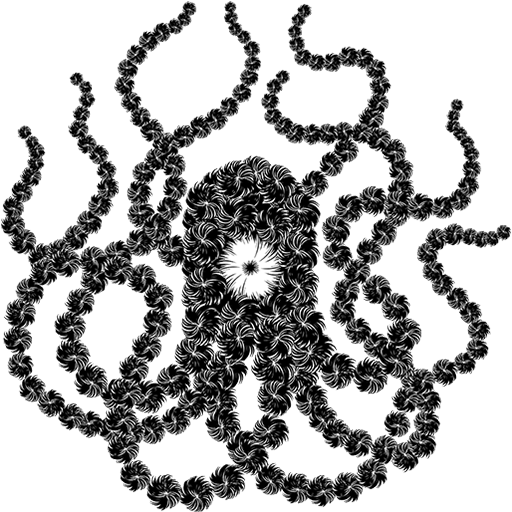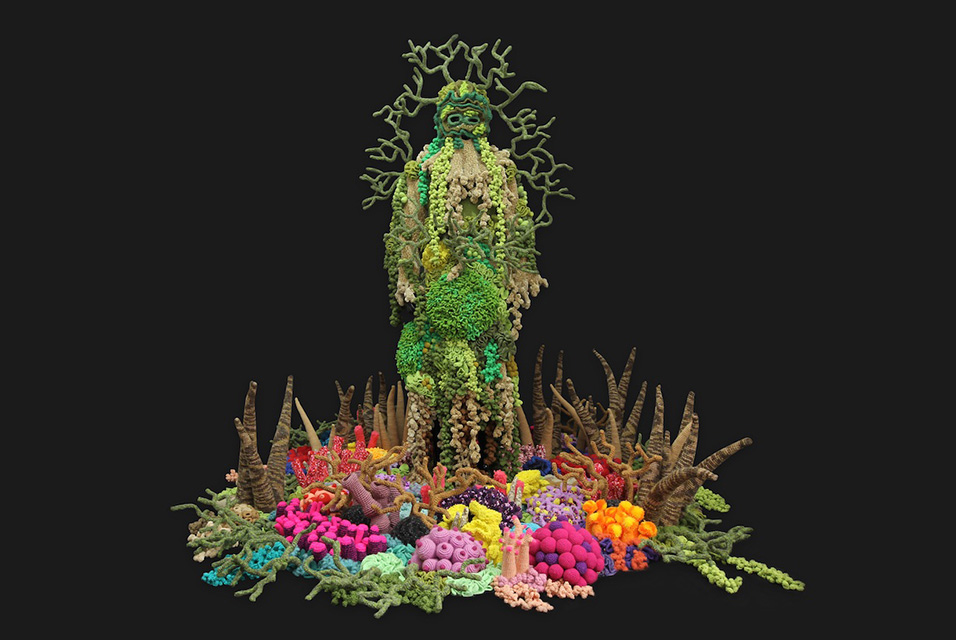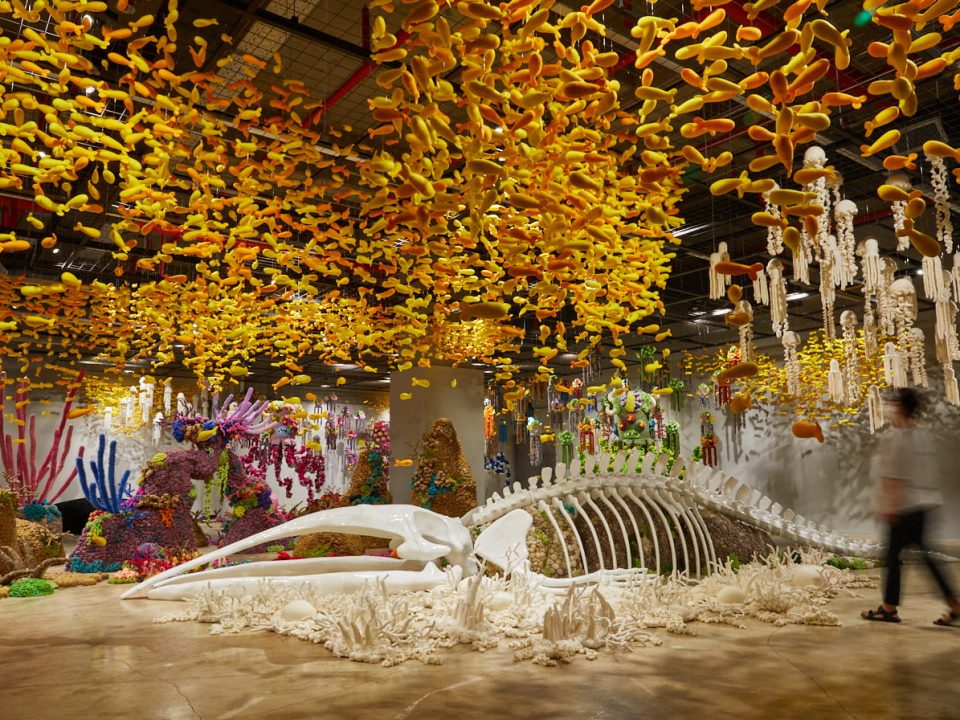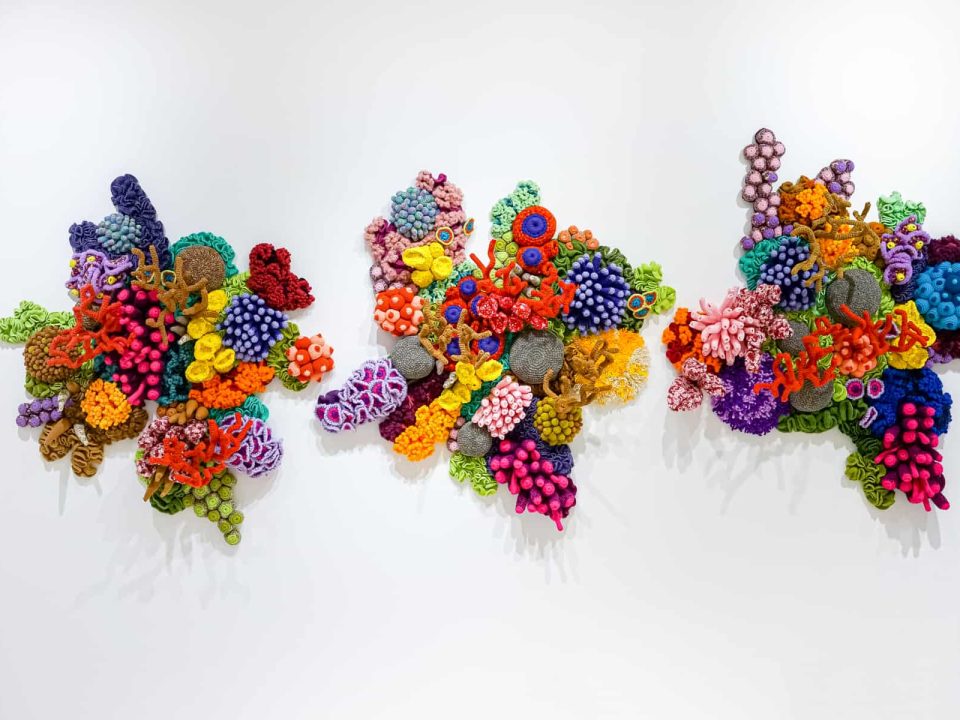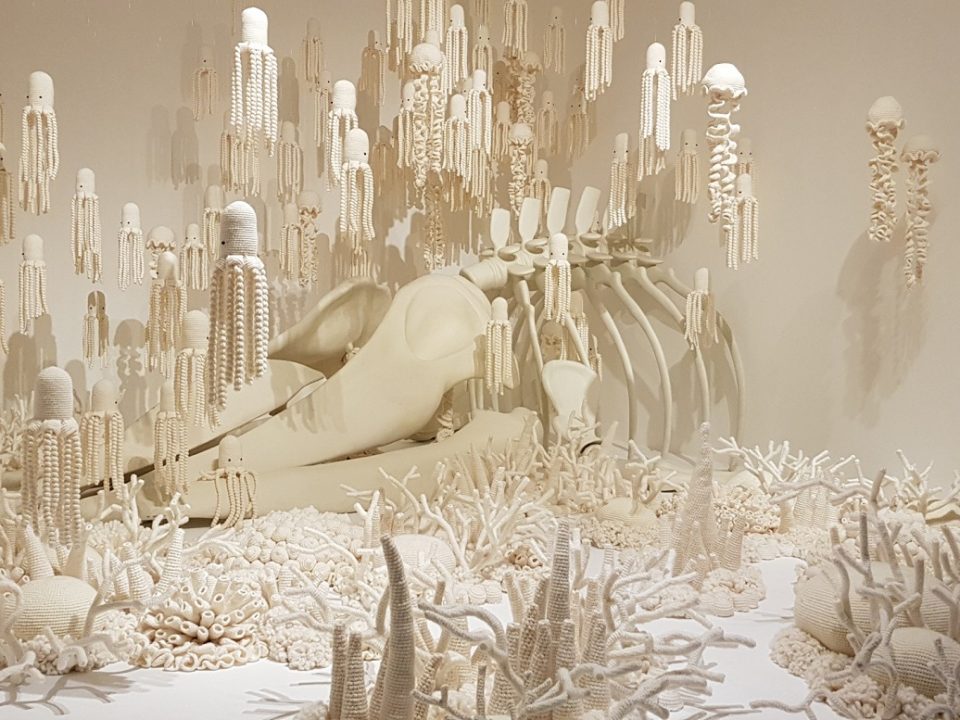
Mulyana: The art of playful crochet
November 24, 2020
A world worth protecting: Mulyana’s playful and environmentally engaged art
May 17, 2022NEW YORK, NY. – Sapar Contemporary opened Mulyana: Fragile Ecologies, the artist’s first solo exhibition at the gallery. Known for his whimsical knit and crocheted Mogus characters and his dazzling underwater landscapes, Mulyana’s latest exhibition Fragile Ecologies, features two life-size, hand-knit and crocheted costumes and a series of sumptuously knit coral islands in the main room of the gallery. As the viewer enters the gallery they encounter multi-colored coral islands and suspended Mogus figures representative of his oeuvre, as well as being treated to a video introducing us to new vibrant costumes on moving figures, that are filmed on location in the beautiful Indonesian landscape.
Masks and costumes are seminal expressions in many folkloric traditions that can signify heroic acts, define religious celebrations, channel spirits, or provide entertainment. Masks in particular are a metaphor for the facades we construct to conceal the ‘true self’ from our neighbors. For Mulyana the impulse behind the Adikara and Nayanika costumed figures is intended to achieve the opposite—for him, these avatars more accurately embody his personality than the Mogus characters are able to do. These figurative tableaus speak to the universal struggle of becoming comfortable in one’s own skin and resonate profoundly as we grapple with this unprecedented era of isolation and uncertainty of the pandemic.
Mulyana’s work directly engages the audience: His immersive installations captivate viewers of all ages both with their fantastical portrayal of oceanic life and his attention to detail in the creation of his creatures. The enveloping experience underscores the precarious nature of complex ecosystems in the sea and examines the peril that this sanctuary is in, as a result of global pollution levels and climate change. Because of his commitment to sustainability, Mulyana incorporates repurposed yarn and support materials in his process to minimize new industrial material production, as well as recycling parts of his installations into new projects.
Mulyana’s generous approach to life is reflected in every component of his art making. He experiences the act of knitting and crocheting as a form of meditation and prayer. Guided by the belief that, “In God’s eyes, our earthly being will eventually meet the Creator in a beautiful place,” he views his artistic expression as a privilege, one that allows him to “show gratitude to the Creator who has blessed me with a sound mind and a healthy body for life on earth.” Based in Yogyakarta, Indonesia, his founding vision was to establish a community-based practice. His earliest collaborators were a group of transgender women from the nearby village of Sorogenen. A dedicated community of artisans, they played a central role in developing the idea for his creaturely knit and crocheted sculptures.
On a macro level, Mulyana’s profound concern for the eroding environment and our collective lack of care for the natural world, parallels the importance of self-care on a micro level. His message encourages a holistic path to self-preservation amidst a chaotic and uncertain post-pandemic world. While Mulyana does not overtly reference gender and sexuality in his intricate installations, the diversity of his colorful environments and spectacular costumes allude to the fluidity of human identity. His commitment to promoting shared values emanates from his spiritual understanding of human dignity, an outlook that honors the totality of creation. By constructing elaborate, magical worlds, Mulyana hopes to ignite our collective imagination to cherish creation and reveal the beauty inside each of us.
About Artist
Mulyana (b.1984, Bandung, Indonesia) formed his alter-ego, the Mogus (monster) in 2008, which is an acronym that merges the Gurita animal (octopus) with Mulyana’s family name (Sigarantang). His colorful, knit installations are emblematic of the global social and environmental concerns we currently face and inspire a renewed responsibility for both nature and the respect of all persons. After completing his graduate degree in art education at the University Pendidikan Indonesia in Bandung (2011), Mulyana moved to Yogyakarta in 2014 to investigate the possibility of community-based projects as an extension of his practice. One of the first groups of collaborators he encountered was a community of transgender women in Sorogenen village, which is well known in the Yogyakarta region. Mulyana’s signature medium of soft knit and crocheted sculptures was conceived through this partnership.
ArtJog 2018 commissioned Mulyana to create his largest installation to date, Sea Remembers. Creating an immersive environment out of knit and crocheted materials, the sculpture features an expansive underwater panorama of creatures and corals, including a 3D printed whale skeleton. The work is now in the collection of the Motomoto Museum in Jakarta, Indonesia. He also collaborated with brands such as HERMES.
In 2019, Mulyana’s works were featured in a solo exhibition at FORM/The Shed in Perth, Australia and a solo museum exhibition at the Orange County Museum of Art, Los Angeles. His works are in the collections of Herbert F. Johnson Museum of Art at Cornell University and The Textile Museum at George Washington University.
Source: artdaily.cc
